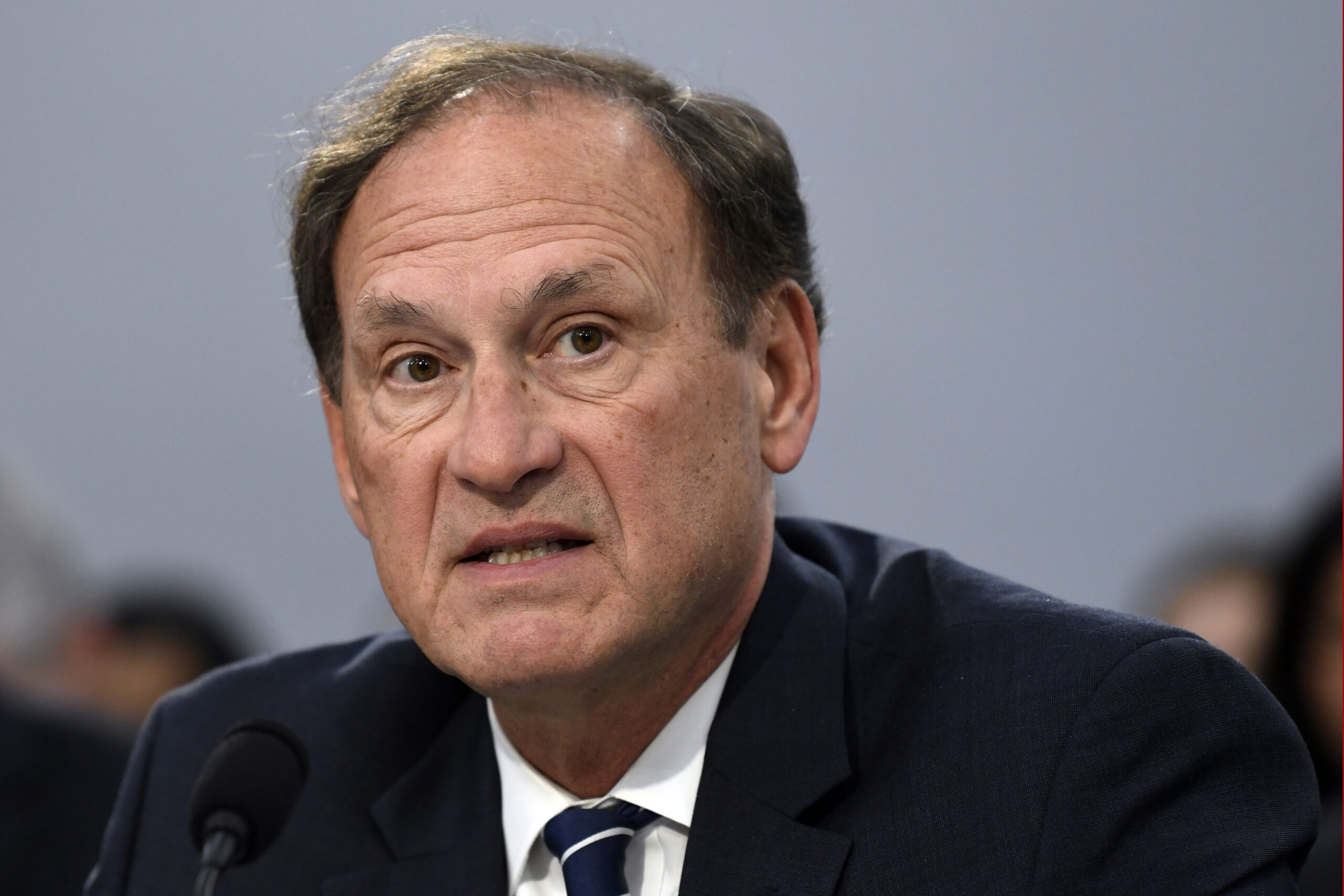
The Supreme Court weighed a historic First Amendment dispute on Monday between Republican-led states and the Biden administration over how far the federal government can go to combat social media posts on subjects including COVID-19 information, election security, or possible threats.
Oral arguments before the high court on Monday centered on a high-profile lawsuit filed by Louisiana, Missouri, and other parties accusing officials in the Biden administration of relying on social media platforms to censor online viewpoints unconstitutionally, including conservative ideas. Justices appeared to be divided among a variety of ways to handle the final decision in the case, but all appeared slightly skeptical of the arguments brought by the plaintiffs.
The case began its ascent to the high court docket after a lower court issued an injunction against the federal government in July 2023 that was later narrowed by an appeals court. The Democratic administration succeeded in convincing the Supreme Court to block those rulings while it considers the matter.
The injunction blocked an array of executive branch officials from communicating with platforms regarding content moderation, such as urging the deletion of certain posts. The two matters for the justices to address are whether the plaintiffs have standing to sue the government and whether the Biden administration “impermissibly” coerced social media companies to moderate third-party speech on their platforms.
Principal Deputy Solicitor General Brian Fletcher was the first to argue Monday on behalf of the Biden administration, and he said the states and individual plaintiffs lacked standing to sue because they haven’t shown an “imminent threat that the government will cause a platform to moderate their posts in particular,” or that the actions the states complain about do not come close to problematic coercion.
“I think if the injunction were to go into effect and the president or … his senior advisers, the press secretary, or someone else wanted to talk to the public about other problems, like the circulation of antisemitic or Islamophobic content on social media platforms … I think all of those things could be done only under the shadow of the injunction,” Fletcher said.
Justice Sonia Sotomayor, a Democratic appointee, asked Fletcher why an injunction to prevent the government from coercing online accounts would be a material injury to the government. Fletcher argued it is the administration’s view that its interaction with social media companies was “persuasive,” not coercive, and that the censorship the respondents said they experienced was not traceable to the government.
Justice Samuel Alito, a Republican appointee who was one of three jurists who said he would have denied the emergency appeal from the Biden administration, argued one of the parties had a Facebook account suspended at the time of the lawsuit’s filing, and he noted that two lower courts found it was traceable to the Biden administration.

“I cannot imagine federal officials taking that approach to the print media. If you did that to them, what do you think the reaction would be? … Would you do that for the New York Times?” Alito asked.
Chief Justice John Roberts told Benjamin Aguinaga, Louisiana’s solicitor general, that the government isn’t “monolithic” when it applies pressure. Platforms for media outlets “have people they go to, probably in the government, to say, ‘Hey, they’re trying to get me to do this,’ and that person may disagree with what the government’s trying to do,” said Roberts, a Republican appointee.
Another Republican appointee, Justice Amy Coney Barrett, appeared to be more hesitant about barring the government from reaching out to social media companies to request the deletion of certain posts. She pointed to a hypothetical example about a person who was “doxxing” a government official and making allusions to causing harm to that official at his or her private home.
“What we say in this case matters for other cases, too,” Barrett said.
Biden-appointed Justice Ketanji Brown Jackson described a hypothetical scenario in which social media platforms allowed posts challenging children to jump out of windows at increasingly tall heights, resulting in serious injuries and deaths.
“Is it your view that the government authorities could not declare those circumstances a public emergency and encourage social media platforms to take down the information that is instigating this problem?” Jackson asked Aguinaga.
Justice Elena Kagan, a Democratic appointee, seemed skeptical of a strong ruling in favor of the plaintiffs. She suggested a possible avenue would be to dismiss the case on the basis that no future harm was shown.
On July 4, 2023, U.S. District Judge Terry Doughty issued a preliminary injunction that found the plaintiffs were likely to succeed on their claim that the government helped suppress “disfavored conservative speech” on COVID-19 health information, or speech that questioned the validity of the 2020 election results.
CLICK HERE TO READ MORE FROM THE WASHINGTON EXAMINER
The Supreme Court’s term has focused heavily on social media disputes. On Friday, the court set the standards for when public officials can block their social media followers. The justices also heard arguments several weeks ago over Republican-passed laws in Florida and Texas that prevent large social media companies from taking down posts because of the views they express.
A decision in the case, Murthy v. Missouri, is expected before the end of the high court’s term in June.






